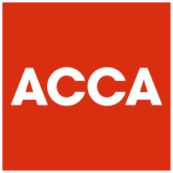Top 20
in the UK for academic support
National Student Survey 2024
Top 30
UK university out of 122 institutions
Guardian University Guide 2025
Gold
rated university in the Teaching Excellence Framework
TEF 2023
Join us at one of our Open Days!
Saturday 11 October
Sunday 26 October
Saturday 22 November
Saturday 11 October
Sunday 26 October
Saturday 22 November
Our next Open Day is in:
Overview
Become a highly-competent financial manager ready for the business world
Our BA (Hons) Accounting and Finance degree will introduce you to general management modules alongside specialist accounting and finance topics to prepare you to become a highly competent financial manager.
You will also gain valuable employment skills and learn to apply your theoretical studies to real-world projects on this course.
You will learn from experienced professionals and guest speakers, study work-based projects, and have opportunities to complete work experience in a one-year placement or 20-week placement in your final year.
Dedicated work placement options
Our work placement opportunities help build your confidence, experience and your ability to stand out from the crowd in a competitive job market.
Small and interactive classes
Our small interactive seminars see you treated as an individual, not just another face in the crowd, and allows our tutors to get to know you and how best to support your academic and personal development.
ACCA and ICAEW accredited programme
The Association of Chartered Certified Accountants (ACCA) accredit our BA (Hons) Accounting and Finance course. We have full accreditation from the ACCA for the first nine papers. Successfully completing the relevant modules means you will be granted exemption from the first nine ACCA exams.
Additionally, we have gained accreditation from the ICAEW. With exemptions from these prestigious accountancy bodies, our graduates need to write fewer exam papers to gain professional accountancy qualifications.


The Course
Study specialist accounting and finance topics alongside a range of management subjects
Year One
Your first year will introduce you to a broad range of accounting and management subjects and basic concepts in accountancy and finance. All modules are linked to the ACCA programme so you will develop the core skills you need to understand accounting and what accountants do.
Year Two
Your second year is divided into two sections: Financial Accounting and Management Accounting. You will choose two optional modules and develop your academic and research skills.
Year Three
In your final year you will explore accounting and finance topics including Corporate Finance and Advanced Financial Accounting, as well as business strategy. You will choose more optional modules than the previous year and be able to specialise in a specific accounting subject.
Business Trips
In your first year you can take part in optional business trips to highlight the skills you will need in the workplace. You will meet people in their place of work, ask questions and learn about the industry and work environment of various businesses.

International Route
Our International Route is suitable for you if English is not your first or main working language and you wish to study this course. This route will allow you to join the course at IELTS 5.5 (minimum across all components).
You will study two Academic English & Skills modules as part of a level 4 curriculum instead of two of the standard year-one course modules. These modules will help develop your academic language skills in order to support your studies. On successful completion of these modules, you will progress with the course as normal.
For further information see our Level 4 International Route page.
Modules
Select a year
Introduction to Critical Business Competencies
This module is designed to support your transition to university and help you develop the skills you’ll need during your academic journey, as well as helping you prepare for professional work. It focuses on building literacy skills, critical engagement, data retrieval and analysis, and presentations.
As part of the module, you will produce a data analysis project report, demonstrating your ability to gather literature and data, analyse and present findings, and adhere to the department’s report-writing standards.
When selecting a project topic, you will be encouraged to explore themes related to business sustainability, such as transport, health, the economy and the environment.
Marketing Principles and Practice
In this module, you will explore the purpose and societal role of marketing, with topics including buyer behaviour, digital innovations, marketing research methods and ethical considerations.
You’ll develop your practical skills in conducting environmental audits and marketing research, applying segmentation, targeting and positioning strategies, and designing your own marketing plans. You will also learn about customer relationship management and look at practical marketing strategies for new product launches.
Management and Organisational Behaviour
In this module, you will look at the three core factors of management and organisational behaviour: external, internal and individual.
You will first explore a range of concepts, tools and models which focus on the external factors that influence and impact organisations, including stakeholder theory.
You will then consider internal perspectives of organisational culture and structure. This will include an examination of the role of teamwork and group dynamics. Finally, you’ll be introduced to concepts of workplace motivation and key ideas around individual diversity.
Technology in Business
This module will introduce you to the use of technology in a business setting, and help you understand the fundamentals of data, information and knowledge management. You will explore how organisations use digital technology solutions to gain a competitive advantage and look at the benefits of implementing successful information systems.
Practical learning activities include exploring case studies and applying your knowledge to solve problems in realistic business scenarios.
Sustainable and Innovative Entrepreneur
This module aims to equip you with an understanding of sustainability in the context of entrepreneurship and innovation. You will learn about integrating sustainability principles into entrepreneurial ventures and the role of sustainable innovations in addressing global challenges, as well as exploring how this is achieved in different industries and organisations.
A key focus will be on the United Nations Sustainable Development Goals (SDGs), corporate social responsibility (CSR), sustainability theory and the role of innovation in fostering a sustainable future. You will apply your learning by exploring real-world challenges and creating innovative solutions through project-based learning.
Accounting Skills
This module will teach you the fundamental accounting concepts, skills and techniques to enable you to be able to collect and record data and transactions, and prepare accounting statements and management accounts.
Key topics will include the functions and differences between financial and management accounting, and identification of the regulatory framework.
You will learn about the accounting system and accounting records at an introductory level, including ledger accounts, double-entry bookkeeping and correction of errors. There will be an introduction to the preparation of final accounts, incorporating accounting adjustments, and cash-flow budgets, including the use of spreadsheets in analysing business scenarios.
Audit and Assurance
This module aims to introduce you to areas of key concepts of audit, assurance, and corporate governance. This will include an understanding of ethics and professional conduct.
You will learn about the audit framework and regulation, planning and risk assessment, internal control, audit evidence and how the discovered material is reviewed and reported.
Assessment:
1-hour In Class Test
2-hour Examination
Data Driven Decision Making
The aim of this module is to introduce you to the concept of data and market research for decision making.
Assessment
2,250-word Leaflet, Brochure, Poster
750-word Explanation Document
Financial Reporting
The aims of this module are to enable you to describe and critically discuss how financial reporting can be regulated, including the system of international accounting standards. In addition, the module aims to provide the necessary knowledge that will enable you to prepare the statutory accounts in the appropriate form for a single company.
Assessment:
1-hour In-class test
2-Hour Unseen Exam
Financial Management
This module aims to introduce you to areas of key financial decision-making and related underlying theory. These decisions include the setting of corporate objectives, the funding of corporate operations and the appraisal of potential investments.
In addition, the choices that are available to companies in terms of their working capital management and the implications of foreign exchange currency movements will be examined.
The module will also provide you with an understanding of the operation of equity markets and the related implications for listed companies.
Assessment:
1-Hour In-class test
2-Hour Examination
Management Accounting for Control
The aims of this module are to develop your understanding of a range of management accounting techniques and how these can be applied to support decision-making. Through the course of the module, you will be required to solve problems that require you to demonstrate thoughtful and effective reasoning in proposing solutions or responses to a given set of circumstances.
Assessment:
1-Hour In-class test
2-Hour Unseen Exam
The Professional Graduate
This module integrates practical elements to enhance career progression, emphasizing the significance of professionalism in the workplace for graduates. It promotes personal and professional development through activities such as career planning, professional placements, and projects.
Reflective practice is highlighted as a key tool for fostering continuous growth and the acquisition of relevant competencies.
Assessment:
3,000-word Assessment Portfolio
Taxation 1
This module is designed to familiarise you with fundamental concepts and principles of the UK taxation system.
Topics covered will encompass the theoretical basis of taxation, the various sources and forms of taxes, and specifically delve into personal income tax, particularly related to employment income.
You will develop the skills to compute personal income tax obligations arising from diverse income streams and comprehend the administrative processes, including compliance deadlines and penalties.
Additionally, the module aims to offer a comprehensive overview of value-added tax (VAT) calculations and explore the scope of national insurance contributions and capital gains tax (CGT). By covering these areas, you will gain a holistic understanding of the UK taxation landscape, enabling you to analyse and navigate tax-related issues effectively.
Assessment:
1,000-word Individual Essay
1.5-hour Examination
Taxation 2
Over the past few years, the UK has made changes in the tax system to remain competitive among the major economies. The tax system is continuously changing specifically in the advent of the financial crisis. This makes UK Tax an important subject area not only for Accounting and Finance students, but also for general business management students.
Assessment:
1-hour In Class Test
2-hour Unseen Examination
Advanced Financial Accounting
The aim of this module is to extend the areas explored within the Financial Reporting module, by examining consolidated accounts, evaluating financial statements to provide an analysis of performance, comparing, and contrasting alternative approaches to asset valuation, and examining current developments in external reporting.
Assessment:
1-hour In-class test
2-hour Examination
Corporate Finance
This is an excellent way to bridge the gap between theory and real-world application in corporate finance. By starting with core concepts and then delving into specific areas such as corporate valuation and M&A activity, you can gain a comprehensive understanding of how these concepts play out in practice.
Introducing more advanced topics like Portfolio Theory and the Capital Asset Pricing Model adds depth to your knowledge and prepares you for analysing complex financial scenarios. The emphasis on “corporate finance in action” is particularly valuable, as it encourages you to apply what you learn to current developments and occurrences in the corporate world, fostering critical thinking and adaptability.
Assessment:
1-hour In Class Test
2-hour Examination
Professional Practice
This module offers you a chance to gain 270 hours of experience in an organisation, building on your work in the Professional Development module. You will secure a placement and develop your Personal Development Planning for future career goals and better employability.
Typically paired with the Research Project, it allows you to focus on personal development within your work placement, enhancing skills for your chosen careers and gaining practical and research expertise in your field. You can choose from options like a Short Work Placement, a Consultancy Project (remote), or Entrepreneurship (requiring Entrepreneurship in semester one).
Assessment:
Assessment 1: 1,800-word Personal Portfolio
Assessment 2: 3,000-word Learning Logs
Assessment 3: 10 minute Personal Presentation
Research Project
The module offers you a chance to delve into a specific area of interest within various organisational contexts, fostering both professional and intellectual growth.
Under the guidance of a supervisor, you will undertake independent research, showcasing your ability for critical thinking and analysis. The chosen topic typically revolves around management issues in either public or private sectors, with a focus on generating findings applicable beyond specific cases.
There are optional placement routes – Industry, Consultancy, or Entrepreneurship – each tailored to align with career goals and academic pursuits.
Assessment:
At the end of stage 2, you will submit a final version of your research project. This will look like the following, depending on the option chosen:
- Completed dissertation (industry route) or consultancy report (consultancy route) which is structured and presented according to the module guidelines (9,000 words)
- Entrepreneurship 2 year growth strategy and professional discussion around key findings on the viability of the business idea from the experience of starting up the business (6,000-word report and 3,000-word equivalent presentation)
Entrepreneurship
OptionalEver wondered what it’s like to run your own business and unsure of how you would go about it? This level 6 module adopts a practical approach to investigating the small business sector and developing business ideas.
The module concentrates on the planning involved when setting-up a new business venture. The main output of the module is the creation of an early-stage business plan that could be used to either set-up a new or develop an existing business.
Even if you decide that running your own business is not for you, going through the experience of developing and writing a business plan, will provide insight into both strategic and operational small business decision making; and increased employability skills that will prove valuable to a future employer.
Assessment:
3,000-word Business Plan + Financial Appendices
Strategic Management
OptionalThe module encourages you to think critically and creatively about strategic management from the formation of strategy through to frontline implementation. It is aimed at those that may have little or no personal experience of strategic management.
Assessment:
10-minute presentation
2,000 word Assignment
Teaching and Assessment
Feel the support of our expert teaching staff
Teaching
You will learn through small interactive workshops of up to 30 students, where you will join a close and supportive environment and develop a wide range of soft skills such as teamwork, communication and time management.
Some workshops include visits from industry guest speakers who will answer your questions about accountancy, finance and the industry.
Assessments
Our BA (Hons) Accounting and Finance course is accredited by the ACCA, so most of your assessments are exams that meet ACCA requirements. The ACCA reviews and approves all exam questions and assessments so you will qualify for exemptions in future ACCA exams when you graduate.
Experience
Discover a close student community, excellent facilities and unique opportunities
Work placements
Gain vital insight into the professional workplace and bolster your CV with our work placement opportunities.
Guest speakers
Hear from guest speakers and lecturers from within the industry.
Close community
Our commitment to a friendly and close-knit student community contributes to a high degree of success for our graduates.
Learning Resource Centre
The Learning Resource Centre (LRC) contains the library, a café, IT/teaching rooms and the Support and Information Zone (SIZ).
Library
Our campus library holds more than 200,000 books and over 500,000 eBooks.
Winners of two PQ Magazine Awards

Our staff and students picked up two top prizes at the prestigious PQ Magazine Awards for 2025. The winners were selected by the top accountancy magazine from a competitive field and the University of Chichester were named Best Accountancy College (Public Sector) and Best Student Body.
Subomi
 |
Stay updatedFollow the Business School on Instagram to see our latest updates or browse through our video collection on the Business School YouTube channel. |
Work Placements
Gain practical experience within the industry
Work placements give you valuable work experience to add to your CV and help to prepare you for the workplace after you graduate.
During work placements you will develop your employability and enterprise skills, so you are ready to thrive in business after you leave university. You could even secure employment after you graduate with your placement employer.
Industrial Placements
There are two main types of placement on this course. You may complete a year-long industrial placement between your second and third years of study, and a 20-week placement during your final year. Some students will complete both placement options.
Most students secure placements in London and the South East but you could travel overseas. Past students have worked in Bahrain, India, Singapore and Australia.
Many placement students continue to work for the companies they completed placements with after they graduate. Some students are even offered full time jobs before their results are published.
Industrial Placement Year
This one-year placement option takes place after your second year of study. You will have a paid position with a company and be an employee as well as a registered student. The company will introduce you to the workplace and provide a valuable learning experience to support and develop your understanding of business practice.
20 Week Work Placement
During your final year you will complete a 20-week work placement. This placement is part time, usually unpaid, and will be assessed as a double module for your degree. Your assessment will focus on employability and personal development.
You will focus on a management project during your placement. This project is usually concerned with investigating management issues within the placement organisation.
Placement Office
The Business School has a dedicated placement office and team who will work with you and relevant businesses to help you find your best placement match. We ensure that placements are at an appropriate level and suitable for your degree.
You are ultimately responsible for finding your own placement but you can take advantage of the team’s business relationships and opportunities advertised by the placement office. Some businesses reach out to the office to re-advertise their placements each year.
Companies our students have worked at include:
- O2
- TakeTwo Interactive
- Notonthehighstreet.com.
Karim
Study Abroad
Explore the opportunity to study part of your course abroad
As a student at the University of Chichester, you can explore opportunities to study abroad during your studies to enrich your educational experiences.
It’s a chance to broaden your horizons, a great opportunity to meet new people, undertake further travelling and to immerse yourself within a new culture.
You will be fully supported throughout the process to help find the right destination and institution for you and your course. We can take you through everything that you will need to consider, from visas to financial support, to ensure you get the best out of your time studying abroad.

Jen
Careers
Prepare for a variety of careers in finance
This BA (Hons) Accounting and Finance degree is ideal for you if you want to become a fully qualified accountant or if you want to work in general management with a high level of financial awareness. Many graduates from this course have gone into industry after they graduate, with many securing roles at accountancy firms.
Jobs related to this degree include:
- Accounting Technician
- Chartered Accountant
- Forensic Accountant
- Investment Banker
- Stockbroker
- Tax Advisor
- Actuary
- Data Analyst.
Florina
Having graduated in 2024, Florina is now working as an Oversight Assistant at Thesis Unit Trust Management Limited.
Florina credits their degree with helping develop the skills and knowledge highly valued by employers.
Moses
Since graduating, Moses has undertaken numerous roles, including Financial Controller at Path Entertainment Group and Finance Manager at VaynerMedia.
Now Senior Finance Analyst at Condé Nast, Moses credits this course to providing the ability to learn the foundations of accountancy and research and how to handle large datasets.
Keegan
After graduating, Keegan completed the Chartered Institute for Securities & Investment Certificate before entering a career in financial investment and is now Operations Analyst at Morgan Stanley.
Morgan Stanley is a global financial investment firm with more than 60,000 employees.
Further Study
You may decide to continue your studies to postgraduate level.
The Business School has a diverse range of postgraduate courses including:
- MSc Digital Marketing
- MBA
- PGCE
- PhD Research.
University of Chichester alumni who have completed a full undergraduate degree at the University will receive a 15% discount on their postgraduate fees.
Course Costs
Course Fees 2025/26
UK fee
International fee
EU/EEA Fee Reduction Scholarship
EU/EEA students automatically pay the equivalent of UK fees via the EU/EEA Fee Reduction Scholarship
For further details about fees, please see our Tuition Fee page.
For further details about international scholarships, please see our Scholarships page.
To find out about any additional costs on this course, please see our Additional Costs page.
Entry Requirements
Typical offers (individual offers may vary):
UCAS
A Levels
BTEC/Cambridge Technical
Access to HE Diploma
T Level
IB
IELTS
Contextual offers
We believe everyone deserves an equal opportunity to pursue higher education, regardless of their background.
When we receive your application we consider your personal circumstances and the factors surrounding your achievements to see if you are eligible for a contextual offer. This is an offer with a reduced entry tariff – typically the equivalent of 16 fewer UCAS points (two A-level grades).
Find out more about our contextual offers.





